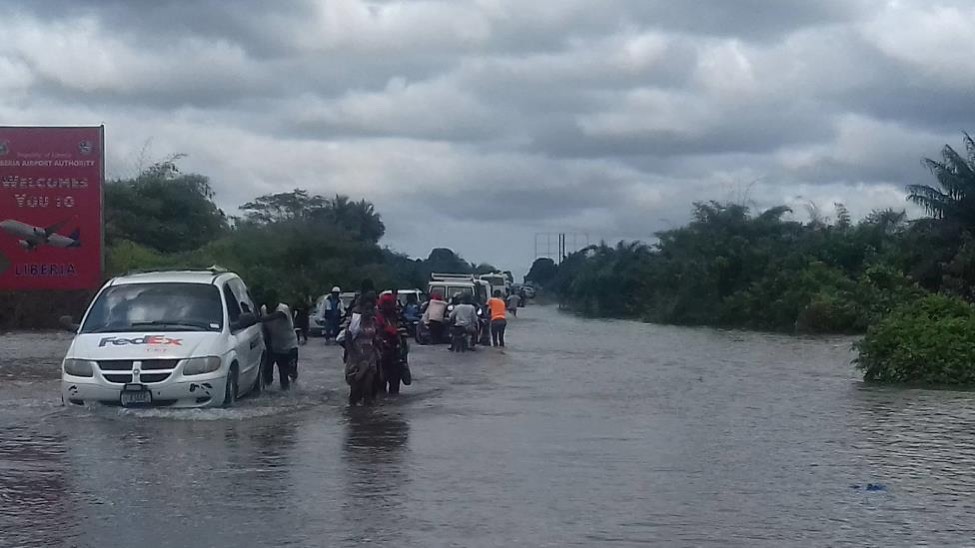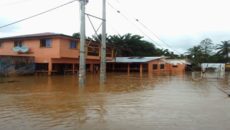BUCHANAN, Grand Bassa – The National Disaster Management Agency says 6,375 persons were impacted by floods and heavy rainstorms across Liberia from April 15 to June 21 this year in 9 of the 15 counties.
The affected counties included Montserrado, Grand Cape mount, Grand Bassa, Lofa, Margibi, Nimba, Bong, Grand Kru, and Maryland. Those individuals lost homes or had their houses damaged.
Speaking at a press conference in Buchanan over the weekend, the executive director of the agency, Henry O. Williams, said a recent incident left one person dead and several others “distressed†in Grand Kru. He said many others were displaced in Maryland, with normal livelihoods disrupted.
“These events are absolutely disturbing and worrisome,†Williams noted. “The impacts of disasters on our societies are posing major obstacles to achieving sustainable socioeconomic development.”
Williams said to reduce the impact of these disasters, there is a need to strengthen international, regional, and sub-regional collaborations to foster a robust and proactive preparedness plan.
“Lessons learnt from the Ebola crisis indicate that coordination was a missing critical tool,†he added. “Owing to the inexistence of the legal framework, which established the National Disaster Management Agency, the government, holding firmly to several international protocols, including the Sendai Framework for Disaster Risk Reduction, coupled with other knowing factors, responded promptly by establishing the National Disaster management Agency in 2016.â€
He named some of the agency’s achievements as finalizing the county disaster management committees’ standard operating procedures in addition to completing a staff induction training. He also said the agency had conducted major risk assessments on three communities – West Point and New Kru Town in Montserrado, and the Tower Hill Community in Margibi.
Williams noted some of the challenges faced by the agency, including a lack of logistical support and limited funding. He said this means that the agency cannot be effective in rural areas.
“We are aware of the competing priorities in consideration of the national budget; however, the safety of the citizens must remain as a prime priority under the Pro-Poor Agenda,” he said, adding that over 500,000 people will be affected in years to come by disasters if the agency’s capacity is not strengthened in time.
In the recent past, government agencies have been quite ineffective in responding to disasters. Individuals affected by floods often look to NGOs and philanthropic individuals to help them recover.
Featured photo by Jefferson Daryoue



